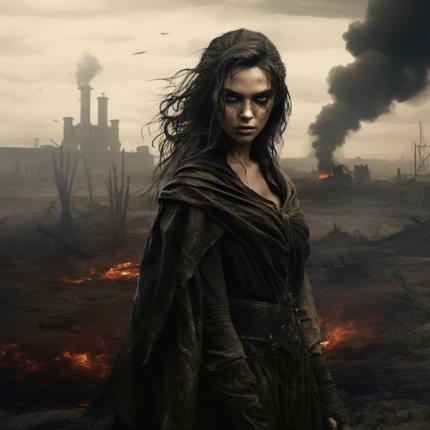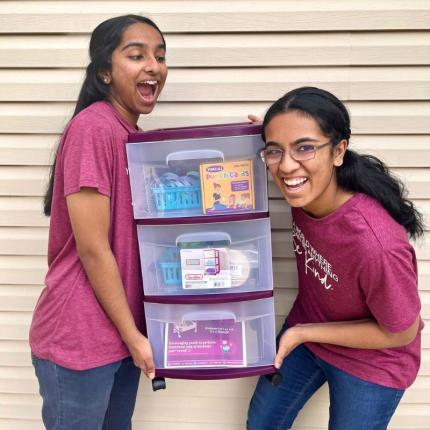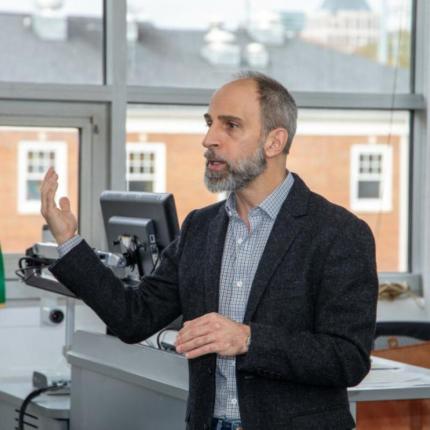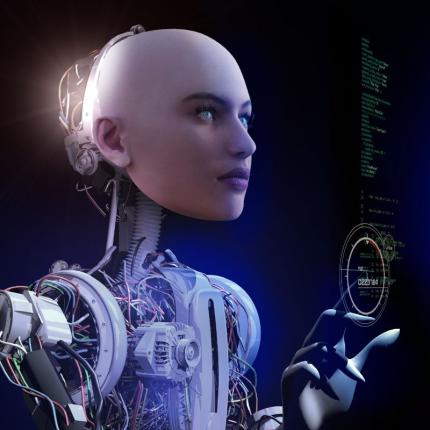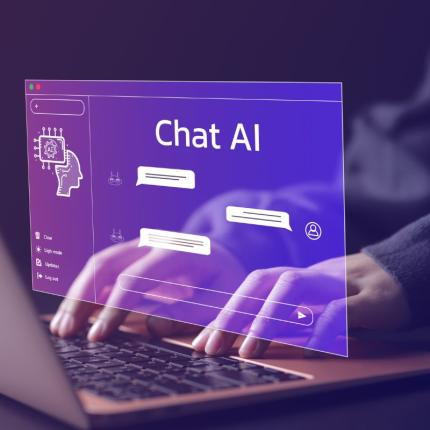Inequality, climate change, and artificial intelligence (AI).
These are three pillar issues impacting our daily lives. While technological advances are one way to approach these global issues, the liberal arts are also a powerful tool for problem-solving in just and equitable ways.
For example, contemplating the posthuman helps us respond to a changing world, and pondering the vast reaches of space challenges us to think about sustainability in new ways. It turns out, when you change your perspective, there's a lot of other ways you can make change as well.
Here’s how Ivan Allen College faculty, students, and alumni are tackling inequality, climate change, and the moral quandaries of AI through the human-first approach of the liberal arts.
Combating the Climate Crisis
An expert breaks down what solar geoengineering is, how it works, and why the idea is so controversial.
Human carelessness, narcissism, and greed are not only the backstory for fictional monsters, but for many of the real disasters affecting the environment today.
People with solar panels may believe they're saving money or that their electricity consumption isn’t as damaging as it was before, so they leave the lights on longer and appliances running.
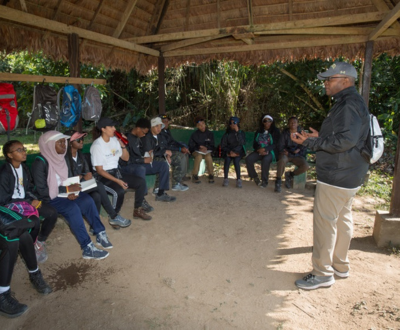
Alumni Spotlight: Albert George
Albert George has led an impactful career in environmentalism. He founded the Amazon Reforestation Project, worked as the director of conservation at the South Carolina Aquarium, and is now the carbon neutral program manager at Apple, where he develops strategies to reduce the company's global supply chain emissions to net zero by 2030.
George said his goal in his work has always been to dispense with the talk and make real change. To do so, he earned marine biology and chemistry degrees and completed programs at Harvard and Yale. But it’s his Master of Science in History and Sociology of Technology and Science (HSTS) from Ivan Allen College that most profoundly shaped the trajectory of his career. Why did this scientist decide to venture into the liberal arts?
Examining Inequality (And Righting Historical Wrongs)
Esha Venkat, a first-year Public Policy student, started the nonprofit NEST4US to make service fun, accessible, and inclusive. Eight years and 7,000 volunteers later, these values keep her passionate about the program.
Investors have been buying houses at a steady rate since the last recession. New research shows they are most likely to push out Black, middle-class homeowners from neighborhoods.
Many enslaved people who lived in Georgia appear only as data points in court records, listed as the property of the men and women who owned them. Christopher Lawton and his students are working to fix that.
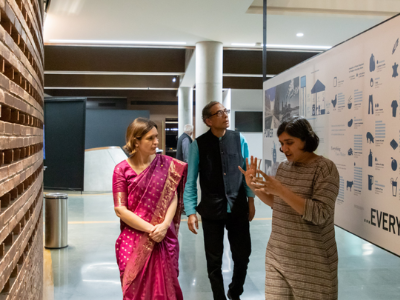
Alumni Spotlight: Jahnavi Phalkey
Jahnavi Phalkey is the founding director of Science Gallery Bengaluru, the first public lab space in India. She leads the project with a vision to democratize access to knowledge in her country.
“We live in a knowledge society where information is traded and monetized. So, if there are people who don't have access to knowledge, then you're effectively denying them the ability to become full members of your society,” Phalkey said. “You're denying them the ability to enter a public debate as a fully formed, fully realized citizen, and in a way, the ability to have any claim on how this society moves forward.”
Understanding Artificial Intelligence
Just as social media exploded on the scene in the 2010s, artificial intelligence is having its moment. The technology comes with many benefits — but raises many ethical concerns as well.
Tyler Cook is a postdoctoral scholar in the School of Public Policy, where he researches machine ethics — the study of ethical decision-making by artificial intelligence.
Go to prompt engineering school with Assistant Professor Yeqing Kong to learn how to better get what you need from ChatGPT.
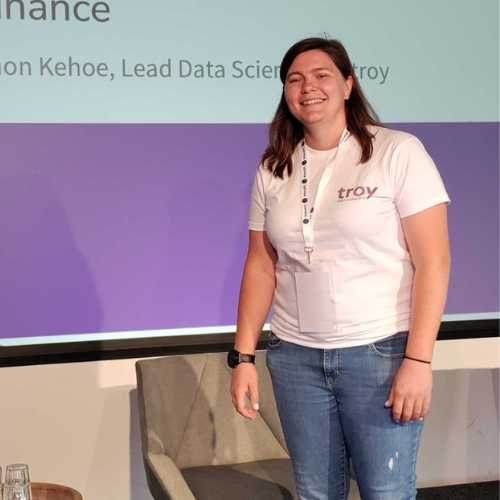 Alumni Spotlight: Shannon Kehoe
Alumni Spotlight: Shannon Kehoe
Shannon Kehoe is the director of artificial intelligence at Cleverbridge, where she leads a team of engineers, data scientists, and product experts.
"Everyone has seen the movie about the A.I. that learns the wrong patterns and takes over the world," Kehoe said. "I work every day to prevent that from happening. Really."
"My degrees from Ivan Allen College and Georgia Tech enable me to build systems that will operate in both today's and tomorrow's legislative landscapes for any region on the planet and to think critically about how the technology I am developing with my teams will impact society."
Get Involved!
Are you interested in making a difference in these fields? Classes, research centers, majors, minors, and Vertically Integrated Projects (VIPs) in the Ivan Allen College offer a variety of ways to learn more and get involved.
Check out our interdisciplinary degrees in Global Development or Human-Computer Interaction. Or, explore 34 minors offered by the College, including two exciting new ones set to launch in Fall 2024 — "Economics and Policy of Environmental Sustainability" and "Applications of Artificial Intelligence and Machine Learning."
Outside of the classroom, IAC research centers and VIPs include the Center for Urban Research, the Climate and Energy Policy Lab, the Sustainable Megaregions project, Art & AI, and much more.


